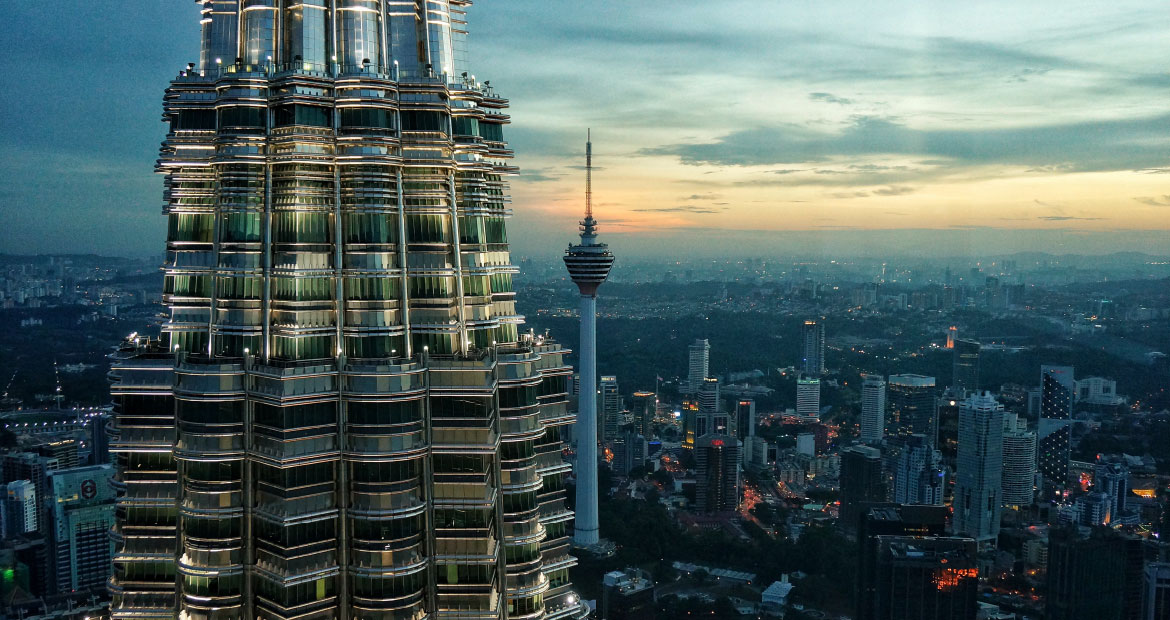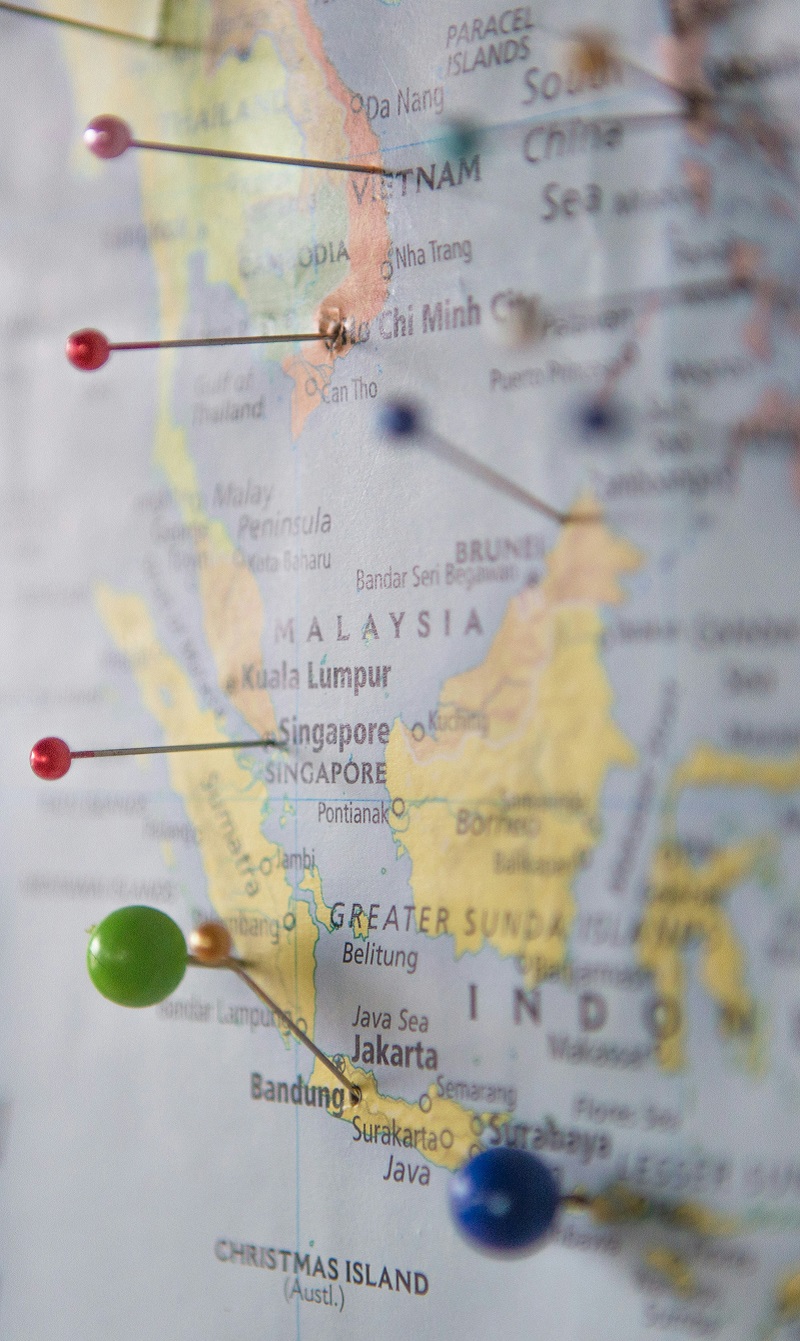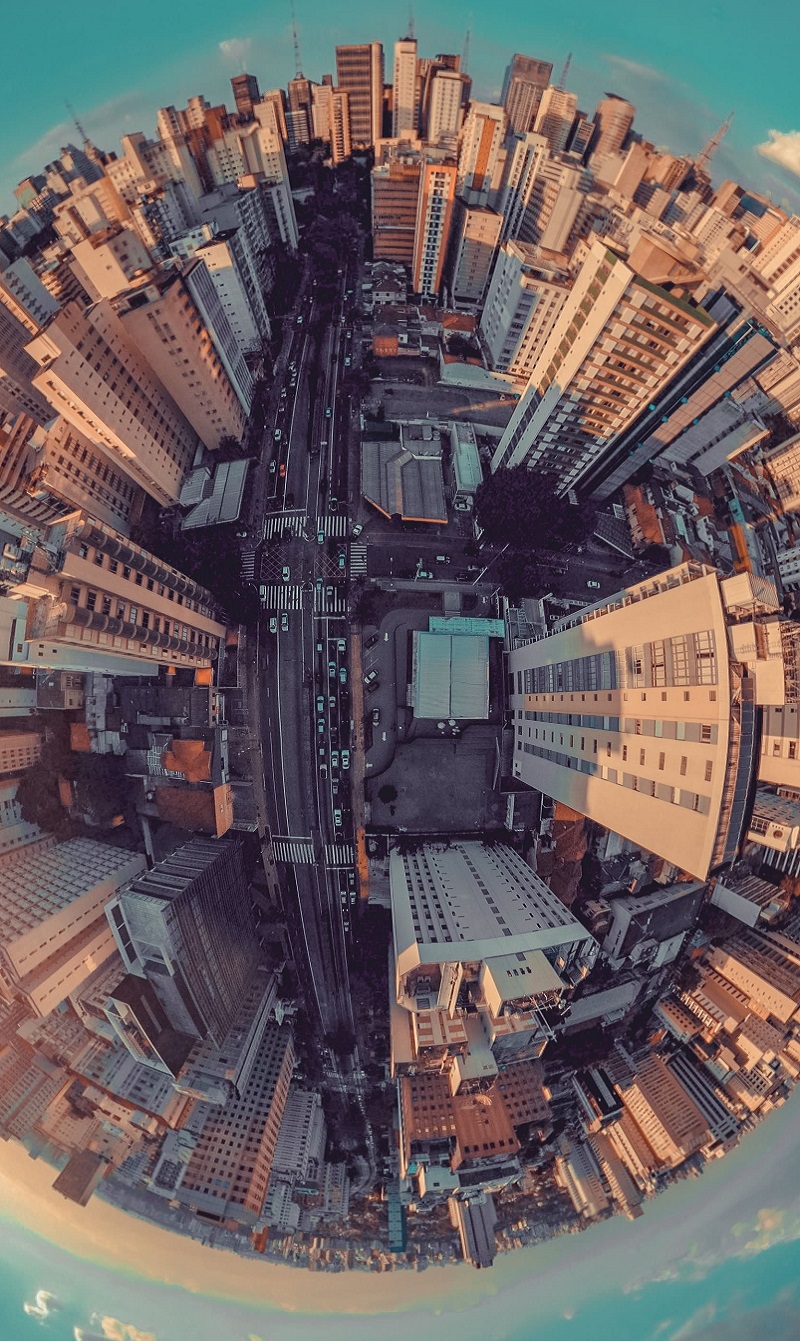Malaysia: A global leader in Islamic economy and finance
A Muslim-majority country with a population of just over 30 million, which has successfully integrated its minorities, Malaysia may not appear as the obvious leader of the fast-growing Islamic economy. After all, the country is located relatively far away from the markets in the Middle East and North Africa, and in the vicinity of the most populous Muslim country in the world, Indonesia.
But Malaysia has beaten the odds. Thanks to early government foresight and effective marketing, the country is the world leader in Islamic finance and in halal food and travel, Malaysia also fares well in other areas, such as modest fashion, halal pharmaceuticals and entertainment.
The Malaysian government’s efforts to promote the Islamic economy started early, in 1974, when a research centre for Islamic affairs was established under the Prime Minister’s office. The entity became the first in the world to issue halal certification letters for shariah-compliant food and beverages In 1982, a halal/haram committee was established under the research centre, which took over the certification process. Comprised of religious representatives as well as health and sanitary, trade, veterinary, and consumer affairs authorities, the committee organised comprehensive checks at hospitality and commercial establishments to ensure that they complied with halal standards.
Fast forward to four decades later and Malaysia boasts a thriving halal economy, and top notch certification and research. The Department of Islamic Development (JAKIM)’s halal certifications are sought after by private and public companies from all over the world, while its Halal Development Corporation (HDC) sets the standards for industrial development and attracting foreign investment in the field Malaysia also owns a fourth of the total shariah-compliant financial assets in the world and has a vibrant Islamic insurance sector.
‘Malaysia has developed Islamic finance as one of the sectors that not only adds value to the economy but offers an alternative to businesses and the public. Our approach has been holistic, yet focused on specific outcomes. The focused approach has led to the exponential growth of the industry and contributed towards the diversification of the Malaysian economy,’ Dato’ Muhammad bin Ibrahim, Deputy Governor of Malaysia’s central bank, said in a speech in June 2015.
Today, the Malaysian government aims to turn the Association of Southeast Asian Nations (ASEAN) into a halal hub headquartered in Kuala Lumpur. According to Prime Minister Najib Razak: ‘As the chair of ASEAN for 2015, Malaysia is keen to promote the development of the halal industry in the region. With the establishment of the ASEAN Economic Community by the end of the year, there is no reason why ASEAN should not become a major halal trading hub, serving both domestic markets and those around the globe.’
Halal food
Malaysia has developed 13 standards for the halal industry, and its MS1500:2004 standard has been adopted as the international halal standard by the United Nations.
In its latest State of the Global Islamic Economy report, Thomson Reuters estimates that Muslims could spend as much as USD2.5 billion on halal food by 2019, double the current amount, and says Malaysia is well-positioned to take advantage of this upward trend. Ranked first in the world in that same study for the health of its halal food economy, Malaysia excels at governance, certification and general awareness of halal foodstuffs. In the absence of global and even regional certification standards, JAKIM’s certifications for halal foods and beverages are recognised and respected worldwide. To date, Malaysia has developed 13 standards for the halal industry, and its MS1500:2004 standard has been adopted as the international halal standard by the United Nations.
However, Malaysia remains a net importer of food, particularly of meat, with annual food imports exceeding USD15 billion. Meat and animal production is especially low in Malaysia, as it is in other member countries of the Organisation for Islamic Cooperation (OIC). The high volumes of halal meat imports from countries like Australia, Brazil, and, more recently, China, occasionally pose challenges regarding compliance with certification standards. That is not to say that Malaysia does not export halal products. In 2013, its halal exports amounted to USD10 billion, 40 per cent of which were food and beverages. However, the significant negative trade balance points to a greater need for larger production volumes domestically.
As of 2015, almost 4,000 companies were registered as manufacturers and traders of halal products in Malaysia. The majority of the producers and retailers are domestic, with big brands like Marrybrown leading a sector that includes numerous small-and medium-sized enterprises. However, Malaysia is also a destination for foreign investors in halal agro-processing. Nestlé, for example, produces the biggest range of its halal products in Malaysia and exports them all over the world, despite the fact that it operates over 140 shariah-compliant factories in other countries.
Alois Hofbauer, managing director and regional head of Nestlé for Malaysia, Singapore and Brunei, says multinationals have an important role in ensuring that market participants of all sizes understand the requirements of halal food manufacturing and logistics. According to Hofbauer, Nestlé is ‘working with the government to ensure that our suppliers locally and worldwide learn the requirements for halal endorsement. In most cases, small companies do not have the know-how or means to fulfil these on their own. It is the responsibility of larger local companies and global ones like ours to help those producing raw ingredients to meet local halal standards. We are also working intensively with the government on a halal supply chain to have more of the raw materials we purchase locally made. This will ensure the traceability of halal ingredients and create shared value locally.’
Marketing plays an important role in the drive to position Malaysia as a halal food hub. Host to the world’s largest halal food expo and conference, the Malaysia International Halal Showcase (MIHAS) and the World Halal Summit WHS, Malaysia attracts tens of thousands of exhibitors, scholars, government representatives and visitors to its capital every year to showcase halal foods, beverages, healthcare, and pharmaceutical products, and to discuss industry standards and trade.
MIHAS 2015, the twelfth edition of the fair, had over 500 exhibitors and more than 20,000 visitors, 12 per cent of whom were international. WHS, meanwhile, attracted speakers from over 18 countries and dignitaries such as Thai Deputy Minister of Commerce Apiradi Tantraporn, Turkish Minister of Customs and Trade, Nurettin Canikli, and the United Arab Emirates’ Minister of Environment and Water, Rashid Ahmed Mohamed Bin Fahad. In addition to increasing Malaysia’s visibility in the global halal community, these marketing initiatives also serve to educate the local population and to promote business; this year’s event resulted in a record USD300 million in sales.
Islamic finance: Malaysia is the undisputed leader
Islamic finance may account for only 1 per cent of global financial assets, but its double digit yearly growth has attracted new players of late. South Africa, the United Kingdom, Luxembourg, and Hong Kong all issued sukuk last year, underscoring the interest in these assets among non-Muslim investors.
Thomson Reuters estimates that Malaysia holds a fourth of the world’s USD1.7 trillion in Islamic financial assets, the largest share in the world, ahead of more populous countries like Iran (USD323 billion) or Turkey (USD51 billion). Led by Islamic banking, Malaysia s shariah-compliant financial sector is expected to expand at 20 per cent per year after recording a growth rate of 13 per cent over the last three years, according to the Association of Islamic Banking Institutions in Malaysia, The country’s 16 Islamic banks, including five foreign ones, hold more than USD135 billion in assets, or 26 per cent of the country’s total banking assets. The adoption of a new Islamic financial services act is expected to drive that figure up to 40 per cent by 2017.
Malaysia is also a leader in sukuk, accounting for about 60 per cent of the global market In the first quarter of 2015, Bursa Malaysia saw the issuance of 42.3 per cent of the world’s sukuk, which totalled USD18.3 billion, dwarfing other major issuers such as Dubai. Meanwhile, the country’s USD160 billion pension fund, the <ahref=”http://www.kwsp.gov.my/portal/en/web/kwsp/home” target=”_blank”>Employee Provident Fund (EPF), plans to initiate a fully shariah-compliant retirement fund in the coming years, which would make it one of the first public pension funds in the world to invest solely in Islamic assets. Takaful also posts healthy growth rates in Malaysia; in 2013, premiums rose 23 per cent year-on-year, to USD3 billion.
The numbers in the financial sector are encouraging and, as is the case with halal products, they are supported by careful governance and regulation. This year, the central bank, Bank Negara, issued 11 new standards to complement existing regulations Islamic financial institutions were required to adopt the new norms by June 30.
Malaysia also excels in the area of research and development. Its International Centre for Education in Islamic Finance (INCEIF) is working together with one of Malaysia’s leading banking groups, CIMB, to establish a research centre for Islamic banking studies, while universities like the International Islamic University of Malaysia offer Islamic finance degrees of international recognition.
Halal travel
Traditional holiday destinations such as Turkey, Spain, and Japan are increasingly adapting their facilities to attract Muslim holidaymakers, who spend an estimated USD140 billion on travel each year. The accommodations include prayer rooms in hotels, halal-compliant restaurants and mini-bars, and gender-segregated beaches or pool areas. Malaysia is also a world leader in halal travel, thanks in part to its natural attractions – beautiful and diverse nature, warm weather and a rich cultural and historical heritage – and to its inclination to cater to Muslim tourists. One of the world’s top tourist destinations, Malaysia attracted over 25 million foreign visitors in 2014, many of them from Islamic majority nations such as Indonesia and Brunei.
In addition to popular destinations and activities, Muslim tourists heading to Malaysia can also opt for tours designed by the Islamic Travel Centre, which include some of the leading cultural and religious attractions, such as the Islamic art museum in Kuala Lumpur, the Jamek and Putra mosques and the Moroccan pavilion. Halal hotels, restaurants and even tour operators abound, in an environment of tolerance and respect for other cultures.
Growth areas: Pharmaceuticals, Cosmetics, Technology
While Malaysia stands as a successful example of a growing Islamic economy, the potential for growth is still immense, and new areas for development open up constantly. One of these areas is pharmaceuticals and cosmetics; halal medicines, vaccines and even stitches are in increasing demand, although most religious scholars recommend that conventional alternatives be used if shariah-compliant ones are not available. Malaysia was the first country in the world to issue guidelines for halal pharmaceuticals, and has seen interesting developments as of late, including a halal vaccine facility developed by Saudi Arabia’s Aljomaih Group and HDC. However, the potential remains for producing more healthcare products, cosmetics and toiletries in a vibrant economy such as Malaysia.
Shariah-compliant services like transportation and logistics or financial instruments such as Islamic microcredits are other growth areas that Malaysia has yet to tap into on a large scale, despite the fact that, according to consultants Frost and Sullivan, ‘the highly recognised halal certification system in Malaysia has given the country an advantage to develop and position itself as a halal logistics hub in the region.’
Modest fashion, which is increasingly taking catwalks in the Middle East by storm, is yet another growth area. Malaysia has sought to promote it through Islamic fashion festival events. However, Malaysian designers and brands like Nashata and Tudung People are dwarfed by large exporters and designer labels from countries like Turkey, the UAE and India, as well as by the modest fashion lines of mainstream brands from the United States, Japan and Europe.
Most importantly, technology is expected to both support and benefit from the growth of the Islamic economy in Malaysia, as financiers ponder investments in online ventures, social media, and initiatives like 3D printing, online games, TV production, and wearable technology. As the world’s Islamic financial capital, Malaysia can be expected to play a major role in developing this next generation of halal products and services.
___________________
This article originally appeared in a special publication by The Worldfolio produced in conjunction with the 11th World Islamic Economic Forum.





